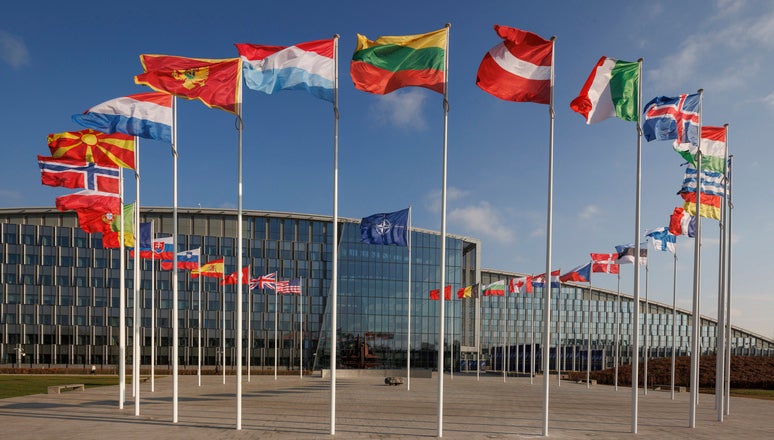NATO Suspend European Armed Forces Treaty After Russia Withdrawal
NATO member nations have condemned Russia’s decision to withdraw from the treaty on Conventional Armed Forces in Europe (CFE) and its involvement in the ongoing war in Ukraine. As a response to this, the ‘Allied States Parties’ are to suspend the operation of the CFE Treaty for as long as necessary. An action that was fully backed by all NATO allies.
The CFE treaty was first signed on 19 November, 1990 and came into effect in November 1994 after the fall of the Berlin Wall and the ending of the Cold War period. Russia had already created a partial suspension from 2007-2015. The treaty was established to limit the amounts of access weaponry held by member nations and set equal ceilings of armaments by their militaries. This included limitations on armor vehicles, artillery and combat aircraft.
NATO member nations were quick to condemn Russias withdrawal, the British Foreign Secretary James Cleverly said:
‘We unequivocally condemn Russia’s decision to withdraw from the Treaty, the latest in a line of Russian efforts to undermine strategic stability and the Euro-Atlantic security architecture…Russia’s unilateral withdrawal undermines reciprocity, which lies at the heart of the CFE Treaty. This is a destabilising move for the integrity of the Treaty and to continue to implement the Treaty would suggest that we think that the Treaty continues to operate as intended. This is plainly not the case.’
A statement from the US Department of Defense from National Security Advisor Jake Sullivan addressed the American response:
‘As reflected in the statement issued at NATO Headquarters today, our Allies unanimously share our view that a situation where the United States and our NATO Allies continue to be militarily constrained by the CFE Treaty, while Russia – whose armed forces are the largest in Europe, and who continues to actively wage a war of aggression against Ukraine using the very forces the treaty aims to constrain – is not, would be unacceptable. Suspension of CFE obligations will strengthen the Alliance’s deterrence and defense capacity by removing restrictions that impact planning, deployments, and exercises – restrictions that no longer bind Russia after Moscow’s withdrawal.’
Poland’s Ministry of Foreign Affairs also commented on the development:
‘In this situation, the security interest of the Republic of Poland requires further strengthening of defence and deterrence capabilities through consistent national and allied efforts. At the same time, Poland does not exclude taking further legal steps in the future, including the denunciation of the CFE Treaty due to the denunciation of the CFE Treaty by Russia, shall the security interests of the Republic of Poland require it.’
A statement was also made by Russia on the Ministry of Foreign Affairs of the Russian Federation website:
‘At 00:00 on November 7, 2023, the procedure for Russia’s withdrawal from this Treaty, provided for by the CFE Treaty, was completed. Thus, the international legal document, the validity of which was suspended by our country back in 2007, has finally become history for Russia’
Their statement also included Russian thoughts on the implementation and effectiveness on the CFE treaty itself. The statement notes that attempting to ensure “military security in Europe without taking into account the interests of Russia” will always lead to failure. The statement also pointed to NATO’S alleged reluctance to adapt to ‘the new situation’ and negotiate, saying:
“NATO member states and client countries of this bloc have clearly demonstrated their inability to negotiate. At this stage, no agreements with them in the field of arms control are possible. Only when life forces them to return to constructive and realistic positions could appropriate dialogue be revived as part of the effort to shape a new.”
The CFE treaty is not the only significant post-Cold War treaty with Russia to have lapsed, in 2020 the Trump administration withdrew from the Open Skies Treaty. On 21 February 2023, Russia suspended its participation in New START, but did not withdraw fully, and just last week withdrew from ratification of the global treaty banning nuclear weapons tests.

